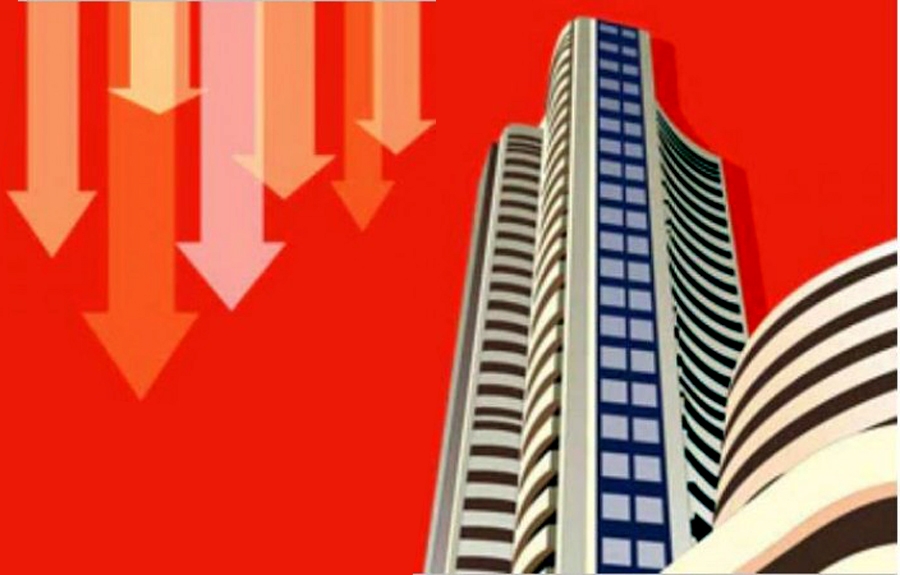Last Updated on April 3, 2025 6:23 pm by INDIAN AWAAZ
Investors responded cautiously to US President Donald Trump’s retaliatory tariffs, as domestic benchmarks, Sensex and Nifty50, settled lower on Thursday. The 30-share Sensex ended down by 322.08 points, or 0.42 per cent, at 76,295.36, while the Nifty50 closed at 23,250.10, down by 82.25 points, or 0.35 per cent.

The Indian stock market closed lower on Thursday as investors remained cautious following US President Donald Trump’s announcement of new tariffs.
The new tariff structure includes a 10 per cent tax on all US imports, with higher tariffs on countries with a trade surplus. India will now face a 26 per cent tariff.
The Sensex fell 322.08 points, or 0.42 per cent, to close at 76,295.36. During the day, the index fluctuated between an intraday high of 76,493.74 and a low of 75,807.55.
The Nifty also ended lower, down 82.25 points, or 0.35 per cent, at 23,250.10.
Tech stocks led the losses, with TCS, HCL Tech, Tech Mahindra, Infosys, and Tata Motors declining by up to 4.02 per cent.
On the other hand, Power Grid Corporation, Sun Pharma, Ultratech Cement, NTPC, and Asian Paints were among the top gainers, rising as much as 4.57 per cent.
The IT sector was the worst performer, with the Nifty IT index dropping 4.21 per cent, dragged down by Persistent Systems, Coforge, TCS, and Mphasis. Auto, oil & gas, and realty stocks also struggled.
However, pharma stocks performed well, with the Nifty Pharma index climbing 2.25 per cent. Banking, healthcare, FMCG, and consumer durables stocks also saw gains, rising up to 1.94 per cent.
Despite the broader market decline, small-cap stocks outperformed, with the Nifty Smallcap100 index rising 0.58 per cent.
Market analysts said that investors are expected to remain watchful of global developments and their impact on market trends.
The rupee ended flat but traded in a volatile range between 85.75 and 85.35, as markets reacted to Trump’s reciprocal tariff policy.
Among broader baskets, small-cap shares posted gains of half a per cent, while mid-cap shares settled with marginal gains.
Vinod Nair, Head of Research at Geojit Investments, attributed the broader market performance to robust domestic macroeconomic data and lower crude oil prices.
“Although the tariff presents short-term challenges, India’s economic resilience and bilateral trade agreements may help mitigate the overall impact,” Nair said.
